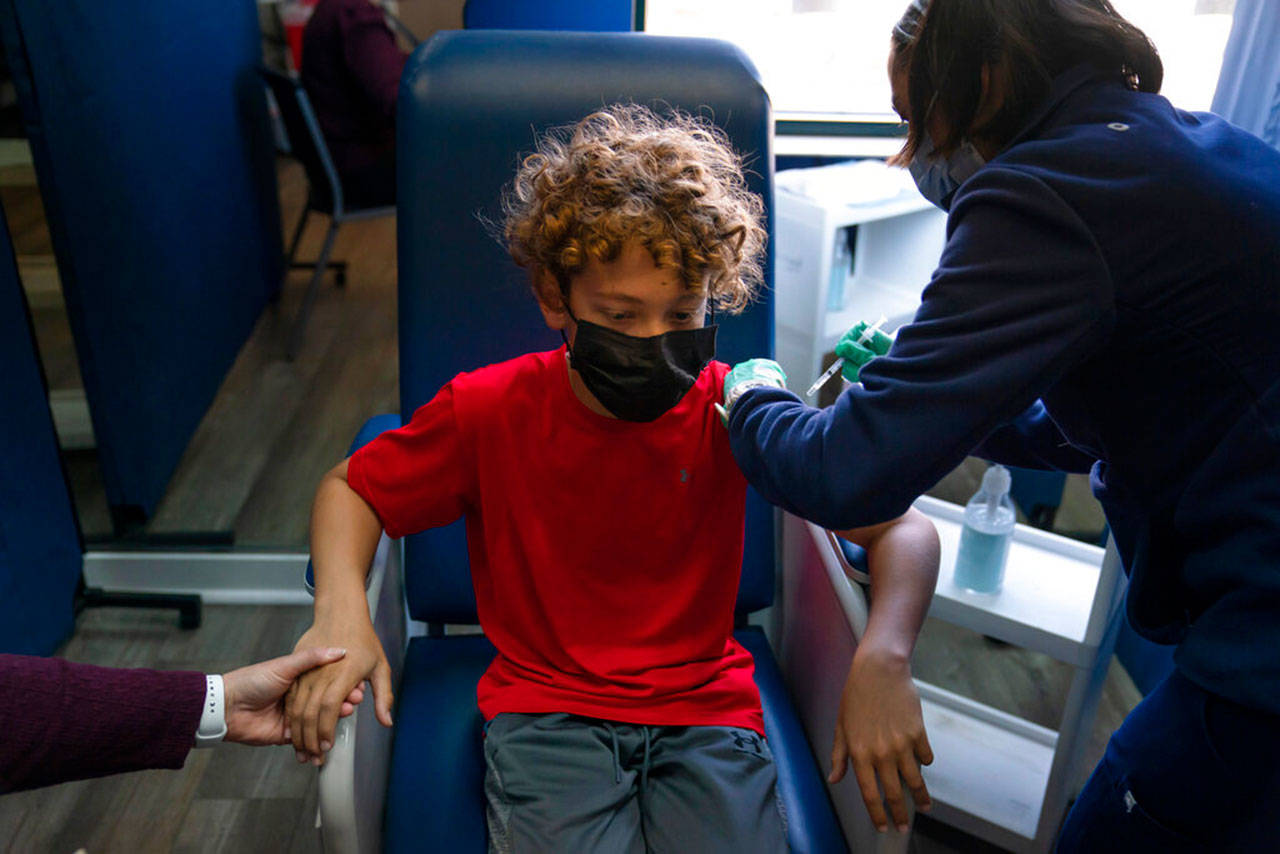By Debbie-Ann Shirley / For The Conversation
The Food and Drug Administration expanded emergency use authorization of the Pfizer-BioNTech covid-19 vaccine to include adolescents 12 to 15 years of age on May 10. The Centers for Disease Control and Prevention followed with recommendations endorsing use in this age group after their advisory group meeting on May 12. The American Academy of Pediatrics also supports this decision.
Dr. Debbie-Ann Shirley is an associate professor of pediatrics at the University of Virginia specializing in pediatric infectious diseases. Here she addresses some of the concerns parents may have about their teen or preteen getting the covid-19 vaccine.
1. Does the vaccine work in adolescents?
Yes, recently released data from Pfizer-BioNTech shows that the covid-19 vaccine seems to work really well in this age group. The covid-19 vaccine was found to be 100 percent efficacious in preventing symptomatic covid-19 in an ongoing clinical trial of children in the U.S. aged 12 to 15. Adolescents made high levels of antibody in response to the vaccine, and their immune response was just as strong as what has been seen in older teens and young adults 16-25 years of age.
2. How do I know whether the vaccine is safe for my child?
So far, the covid-19 vaccine appears to be safe and well tolerated in adolescents. All of the covid-19 vaccines authorized for use in the U.S. have undergone rigorous study, but we don’t want to assume that children are little adults. This is why it is so important to study these vaccines just as carefully in children before health authorities could recommend use. Ongoing studies will continue to follow vaccinated children closely and robust safety monitoring will help rapidly identify rare or unexpected concerns if they emerge.
3. I thought children were low-risk; do they still need to get the vaccine?
Currently, children represent nearly one-quarter of all new reported weekly covid-19 cases in the U.S. While serious illness from covid-19 is rare in children, it does occur; thousands of children have been hospitalized and at least 351 children have died from covid-19 in the U.S. Some children who get seriously ill from covid-19 may have underlying health conditions, but not all do. Vaccination will help protect children from developing serious illness.
Additionally, since adolescents can transmit covid-19 to others, vaccinating children may prove to be an important part of safely getting back to normal activities of life, including attending school in person, participating in team sports and spending time with friends. A large survey of school-aged children showed that children in full or partial virtual school reported lower levels of physical activity, less in-person time socializing with friends and worse mental or emotional health compared with those receiving full in-person schooling. Children are experiencing unprecedented increases in indirect adverse health and educational consequences related to the pandemic, and we need to find ways to help them get quickly and safely back to normal life. Vaccination is one of them.
4. What side effects might I expect for my child?
Nonsevere side effects may be experienced following vaccination. The most commonly reported side effects have been pain and swelling at the injection site. Other common side effects include tiredness and headache. Similar to young adults, some adolescents have experienced fever, chills, muscle aches and joint pain, which may be more common after the second dose. These effects are short-lived, however, and most resolve within one to two days.
Some adolescents may faint when receiving an injection. If this is a concern for your child, let your vaccine administration site know ahead of time; your child can be given the vaccine while they’re seated or lying down to avoid inju-ries from falling.
5. Have there been any severe reactions among children?
No serious adverse events related to vaccination were reported in the Pfizer-BioNTech clinical trial. Serious allergic reactions have rarely been reported in older people. Anyone with a known severe or immediate allergy to the vaccine or any component of the vaccine should not get the vaccine. If your child has a history of any severe allergic reactions or any type of immediate allergic reaction to a vaccine or injectable therapy, let the vaccine site administrator know so that your child can be monitored for at least 30 minutes after getting the vaccine.
Parents should talk to a trusted health care provider or allergist if they have specific questions about the possibility of an allergic reaction in their child.
6. When will a covid-19 vaccine be authorized for children younger than 12 years?
Covid-19 vaccine makers have begun or are planning to begin testing covid-19 vaccines in younger children. As more information becomes available, the authorized age recommendations may change. Children ages 2-11 years old could potentially be eligible as early as the end of this year.
7. If I’ve been vaccinated but my child hasn’t, could I still give the virus to them?
The covid-19 vaccines do not contain live covid-19 virus, so they cannot cause covid-19. Rather, getting vaccinated will help protect both you and your children from covid-19. Studies have shown that vaccinated pregnant and lactating mothers can pass protective immunity on to their young infants across the placenta and in breast milk; one more benefit of vaccination.
Though researchers are still learning how well the vaccine can help prevent spread, vaccination is still an important way to limit infecting people who are not yet eligible for the vaccine, like younger children.
Dr. Debbie-Ann Shirley is head of the Division of Pediatric Infectious Disease at the University of Virginia. This article is republished from The Conversation under a Creative Commons license.
Talk to us
> Give us your news tips.
> Send us a letter to the editor.
> More Herald contact information.

























